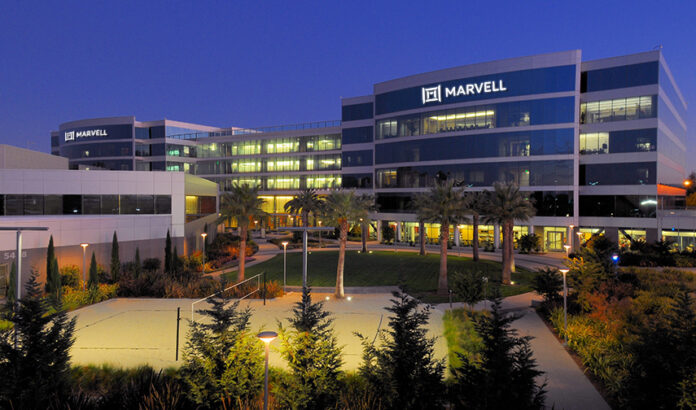Chip company Marvell reported strong growth in its data center AI segment, and that it sees signs of growth returning to the enterprise and carrier infrastructure markets.
Net revenue for Marvell’s second quarter of fiscal 2025 was $1.273 billion, which was above the midpoint of its guidance but still down 5% year-on-year. Its net loss for the quarter was $193.3 million, less than the $207.5 million loss that it posted during the year-ago period.
“Marvell’s second quarter revenue grew 10% sequentially, above the mid-point of guidance driven by strong demand from AI. We saw strong growth from our electro-optics products and our custom AI programs began to ramp,” said Matt Murphy, Marvell’s chairman and CEO. “Next quarter, we expect our combined enterprise networking and carrier end markets to return to growth, while our data center end market growth accelerates. As a result, for the third quarter of fiscal 2025, we expect all our end markets to grow sequentially, with consolidated revenue forecasted to grow 14% sequentially at the mid-point, accompanied by a significant increase in operating leverage.”
On the company’s quarterly call, Murphy said that its data center business saw record revenue of $881 million in the quarter, up 92% year-over-year and 8% sequentially. “We are … looking forward to addressing a number of new opportunities within the data center,” he said, adding: “We are continuing to broaden our end-to-end product portfolio to address all the critical interconnect needs of our data center customers.”
Murphy also reiterated that Marvell thinks its enterprise networking and carrier infrastructure end markets have bottomed out, and the company is now seeing signs of growth in both of those markets for the fiscal third quarter.
In the company’s custom silicon business, Murphy said, AI is driving growth. “As investment in AI and accelerated computing continues to surge, Tier 1 cloud providers are increasingly focused on using custom silicon to improve their data center TCO and drive differentiation. AI has accelerated the cadence of new chip releases, resulting in shorter design windows and faster time to production, accompanied by significant increases in complexity with each new generation,” he explained. Murphy said that Marvell’s first two AI custom chips are ramping into production volume and it has other projects in development; for the third quarter of its fiscal year, it expects revenue acceleration sequentially, with AI custom silicon within the data center expected to be the largest contributor to the revenue growth.

